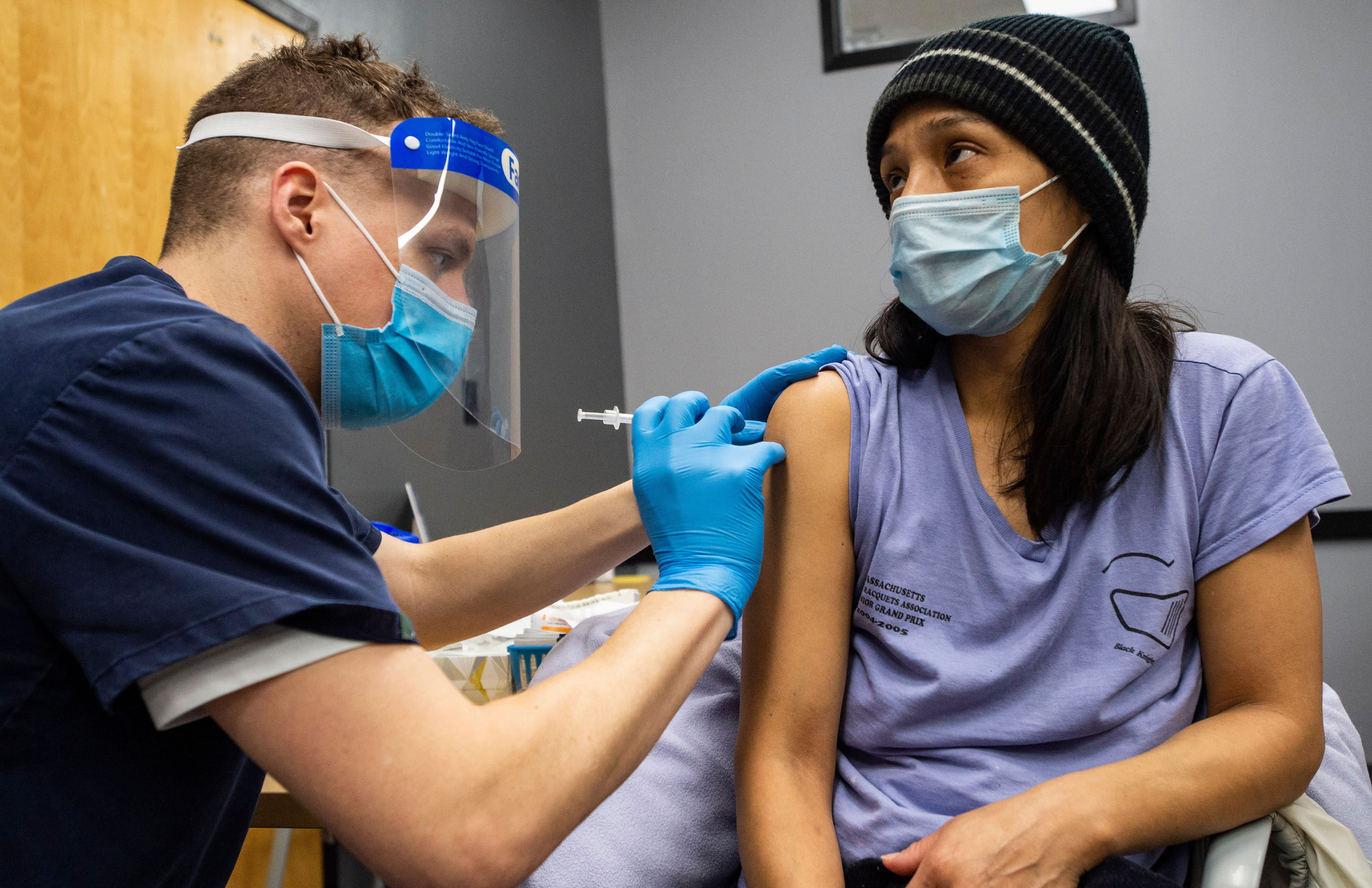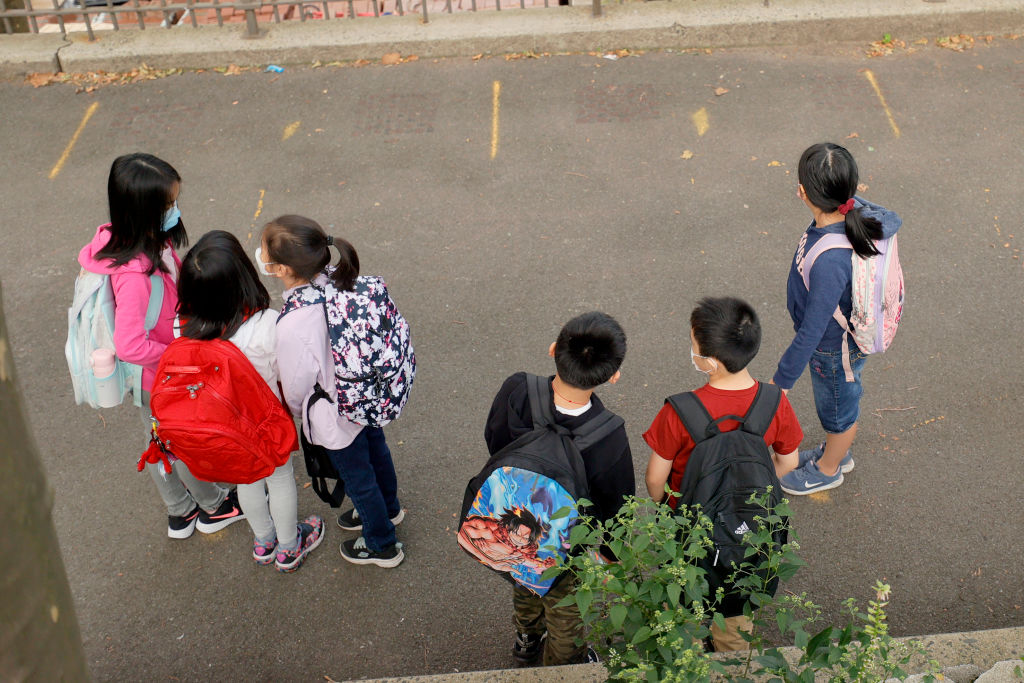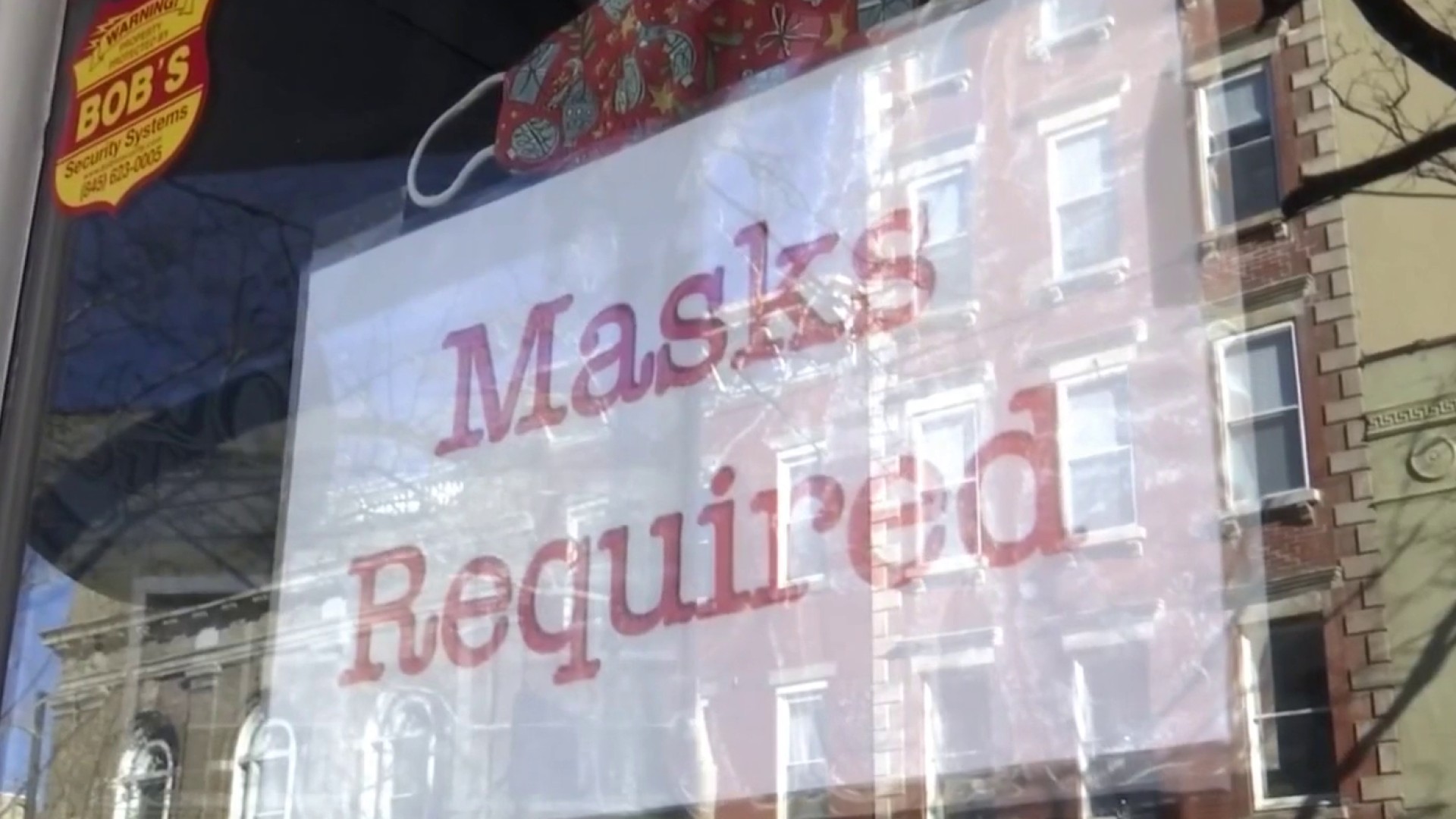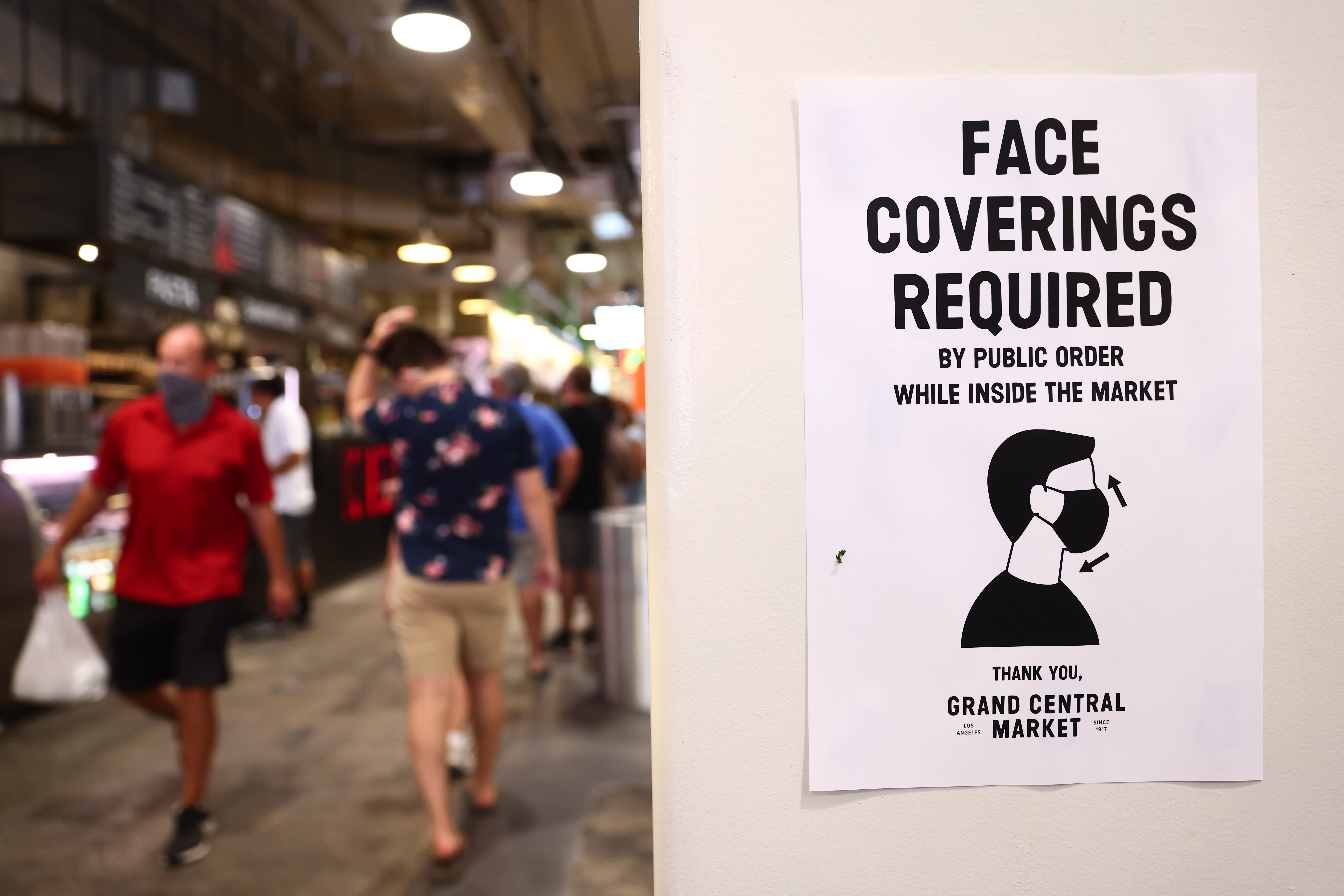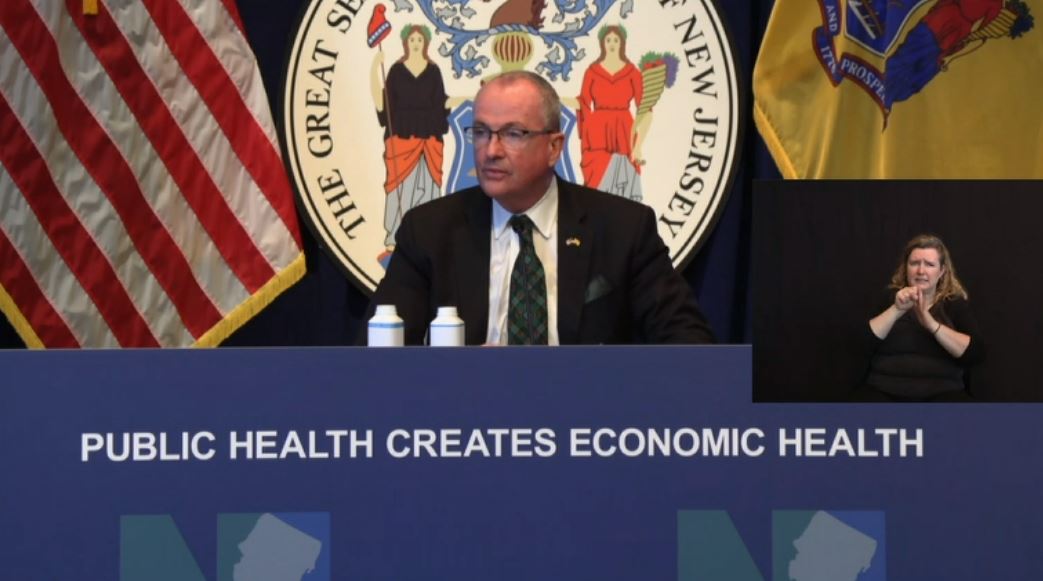New York City Mayor Bill de Blasio's new vaccine-proof requirement for kids aged 5 to 11 takes effect Tuesday, exactly one year to the day Queens nurse Sandra Lindsay became the first adult in the five boroughs to get a COVID-19 shot.
A full year later, 82.1% of adults citywide now are fully inoculated, while just 38.5% of eligible children can say the same. The first dose rate for the latter is 49.5% and climbing as yet another variant-fueled COVID wave sweeps the country.
Core COVID rates today are mercifully down from last winter, but officials at all levels of government in New York continue to push vaccinations to ward off a potential winter wave that is already swallowing much of the United States.
On the day an eager nation began rolling up its sleeves, Dec. 14, 2020, the U.S. death toll from COVID-19 hit 300,000. Deaths were running at an average of more than 2,500 a day and rising fast, worse than what the country witnessed during the harrowing spring of 2020, when the city was the epicenter of the U.S. outbreak.
Get Tri-state area news and weather forecasts to your inbox. Sign up for NBC New York newsletters.
City officials have hoped to boost the number of those vaccinated to prevent hospitals from overflowing and save lives by implementing strictest-in-the-nation vaccine requirements for indoor diners, gymgoers, entertainment venues and city workers. That's why the youngest eligible kids are now subject to the mandate.
More Coverage
The biggest vaccination drive in American history began with a limited supply. Appointments were hard to find and the city and state websites crashed from the crush of people looking to protect themselves from COVID-19.
They hoped it would mean the end of the pandemic. That hasn't happened.
A year later, health officials are still urging people to get the shot.
The nation’s COVID-19 death toll stands at around 800,000 as the anniversary of the U.S. vaccine rollout arrives. That's a half-million more than where it was last year. An untold number of lives, perhaps tens of thousands, have been saved by vaccination. But what might have been a time to celebrate a scientific achievement is fraught with discord and mourning.
National Institutes of Health Director Francis Collins said scientists and health officials may have underestimated how the spread of misinformation could hobble the “astounding achievement” of the vaccines.
“Deaths continue ... most of them unvaccinated, most of the unvaccinated because somebody somewhere fed them information that was categorically wrong and dangerous,” Collins said.
Developed and rolled out at blistering speed, the vaccines have proved incredibly safe and highly effective at preventing deaths and hospitalizations. Unvaccinated people have a 14 times higher risk of dying compared to fully vaccinated people, the CDC estimated based on available data from September.
Their effectiveness has held up for the most part, allowing schools to reopen, restaurants to welcome diners and families to gather for the holidays. At last count, 95% of Americans 65 and older had had at least one shot, though the global spread of the omicron variant has revived vaccine efficacy concerns anew.
“In terms of scientific, public health and logistical achievements, this is in the same category as putting a man on the moon,” said Dr. David Dowdy, an infectious-disease epidemiologist at Johns Hopkins Bloomberg School of Public Health.
The vaccines’ first year has been rocky with the disappointment of breakthrough infections, the political strife over mandates and, now, worries about whether the mutant omicron will evade protection.
Despite all that, Dowdy said, “we’re going to look back and say the vaccines were a huge success story.”
Total U.S. deaths had crossed 500,000 by February, but the daily death count was plummeting from the horrible heights of early January. With hopes rising in early March, New York was among states that began reopening, lifting mask mandates and limits on indoor dining. Former President Donald Trump assured his supporters during a Fox News interview that the vaccine was safe and urged them to get it.
But by June, with the threat from COVID-19 seemingly fading, demand for vaccines had slipped and states and companies had turned to incentives to try to restore interest in vaccination.
It was too little, too late. Delta, a highly contagious mutated form of coronavirus, had silently arrived and had begun to spread quickly, finding plenty of unvaccinated victims. This winter's surge has led Gov. Kathy Hochul to reimplement the statewide indoor mask mandate that went into effect on Monday.
“You have to be almost perfect almost all the time to beat this virus,” said Andrew Noymer, a public health professor at the University of California, Irvine. “The vaccine alone is not causing the pandemic to crash back to Earth.”
One of the great missed opportunities of the COVID-19 pandemic is the shunning of vaccination by many Americans.
This fall, Rachel McKibbens, 45, lost her father and brother to COVID-19. Both had refused the protection of vaccination because they believed false conspiracy theories that the shots contained poison.
“What an embarrassment of a tragedy,” McKibbens said. “It didn’t have to be this way.”
More than 228,500 Americans have died from COVID-19 since April 19, the date when all U.S. adults were eligible to be vaccinated. That’s about 29% of the count since the first U.S. coronavirus deaths were recorded in February 2020, according to an Associated Press analysis.
In all, two states — Florida and Texas — contributed more than 52,000 deaths since that date. Alaska, Hawaii, Oregon, Wyoming and Idaho also saw outsize death tolls after mid-April.
Red states were more likely than blue states to have greater than average death tolls since then.
“I see the U.S. as being in camps,” Noymer said. “The vaccines have become a litmus test for trust in government.”
Wyoming and West Virginia, the states with the highest vote percentages for Donald Trump in 2016, have recorded about 50% of their total COVID-19 deaths since all adults were declared eligible for the vaccine in those states. In Oklahoma, nearly 60% of COVID-19 deaths occurred after all adults were vaccine-eligible.
There are exceptions: Notably, Hawaii and Oregon are the only Joe Biden-supporting states where more than half of the COVID-19 deaths came after shots were thrown open to all adults. North Dakota and South Dakota — both ardent Trump states — have kept their share of deaths after the vaccine became available across the board to under 25%.
California has seen more than 15,000 COVID-19 deaths since the state opened eligibility to all adults in mid-April. McKibbens’ father and brother died in Santa Ana, California, in their shared home.
McKibbens pieced together what happened from text messages on her brother’s phone. Some of the texts she read after his death, including back-and-forth messages with a cousin who cited TikTok as the source of bad advice.
“My brother did not seek medical attention for my dad,” keeping him lying on his back, even as his breathing began to sound like a broken-down motor, said McKibbens, who lives across the country in Rochester, New York.
Her father, Pete Camacho, died Oct. 22 at age 67. McKibbens flew to California to help with arrangements.
Her brother was sick, too, but “he refused to let me into the house because he said I shed coronavirus because I was vaccinated,” McKibbens recalled. “It was a strange new belief I had never heard before.”
A friend found her brother’s body after noticing food deliveries untouched on the porch. Peter Camacho, named for his father, died Nov. 8 at age 44.
“For me to have lost two-thirds of my family, it just levels you,” McKibbens said.
More Coverage
Important advice came too late for some. Seven months pregnant and unvaccinated, Tamara Alves Rodriguez tested positive for the coronavirus Aug. 9. Two days later, with many pregnant women falling seriously ill, U.S. health officials strengthened their guidance to urge all mothers-to-be to get vaccinated.
Rodriguez had tried to get vaccinated weeks earlier but was told at a pharmacy she needed authorization from her doctor. “She never returned,” said her sister, Tanya Alves of Weston, Florida.
Six days after testing positive, Rodriguez had to have a breathing tube inserted down her throat at a hospital near her home in San Juan, Puerto Rico. Her baby girl was delivered by emergency cesarean section Aug. 16.
The young mother never held her child. Rodriguez died Oct. 30 at age 24. She left behind her husband, two other children and an extended family.
“Her children ask for her constantly,” Alves said. “I literally feel like a piece of me has been ripped out of me and even those words aren’t enough to describe it.”
She urges others to get vaccinated: “If you would know the terror of being hospitalized or having a loved one there ... if people would know, they would be afraid of this instead of fearing the vaccine.”

